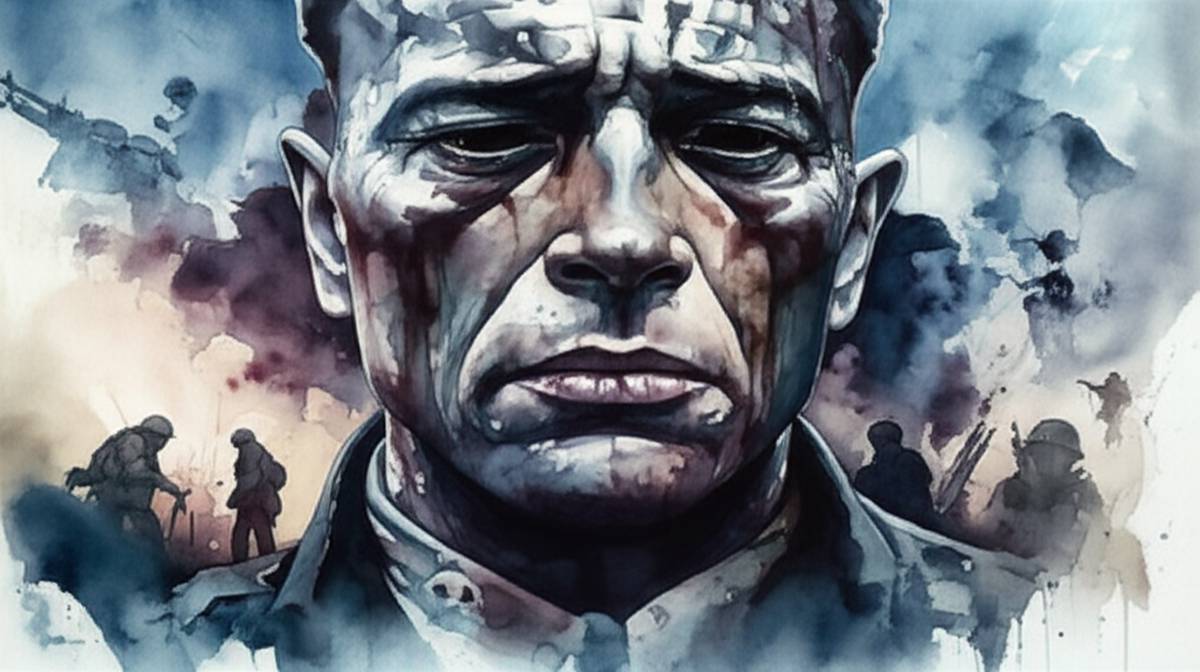War leaves scars that go far beyond the physical battlefield. The psychological cost of war is a heavy burden, borne by soldiers, civilians, and entire communities. At Billionmode, we believe in building not just wealth, but also well-being. Understanding these unseen wounds is the first step towards healing and building a more resilient future. This article aims to shed light on the profound psychological effects of war and offer pathways to recovery and hope.
Understanding the Invisible Wounds
The trauma of war can manifest in many ways, often hidden beneath the surface. These psychological wounds can be as debilitating as physical injuries, impacting every aspect of a person’s life. It’s crucial to recognize these signs and offer support.
Post-Traumatic Stress Disorder (PTSD)
PTSD is perhaps the most well-known psychological consequence of war. It’s a condition that can develop after experiencing or witnessing a terrifying event. Symptoms can include:
- Flashbacks: Reliving the traumatic event as if it were happening again.
- Nightmares: Disturbing dreams related to the war experience.
- Anxiety and Panic Attacks: Overwhelming feelings of fear and unease.
- Avoidance: Staying away from places, people, or things that trigger memories of the trauma.
- Hyperarousal: Being easily startled, having difficulty sleeping, and feeling constantly on edge.
These symptoms can significantly disrupt daily life, making it difficult to maintain relationships, work, or even perform simple tasks. Understanding how our mindset affects our coping strategies is crucial in managing PTSD.
Moral Injury
Moral injury is a relatively new concept that describes the psychological distress resulting from actions, or the failure to act, that violate a person’s moral code during wartime. This can occur when soldiers are forced to make difficult decisions that go against their values, or when they witness atrocities that challenge their sense of right and wrong. Moral injury can lead to feelings of guilt, shame, and self-loathing.
Grief and Loss
War brings immense loss. The death of loved ones, the destruction of homes and communities, and the loss of a sense of security can all contribute to profound grief. This grief can be complicated by the circumstances of war, such as the lack of closure or the inability to properly mourn the dead. Understanding the grieving process and seeking support can be essential for healing. We can design our life to actively remember and honor our loved ones.
The Impact on Civilians
While soldiers often bear the brunt of the physical dangers of war, civilians are also deeply affected by the psychological cost. They may experience trauma from witnessing violence, displacement from their homes, and the constant fear of attack. Children are particularly vulnerable, as their developing minds are less equipped to cope with the horrors of war.
Displacement and Refugee Crisis
War often forces people to flee their homes, becoming refugees or internally displaced persons. This displacement can lead to a loss of identity, culture, and community. Refugees may face discrimination, poverty, and a lack of access to basic necessities, all of which can exacerbate psychological distress. Find out about digital nomads and their freedom.
The Impact on Children
Children exposed to war trauma are at risk for a range of psychological problems, including PTSD, anxiety, depression, and behavioral issues. They may also experience developmental delays and difficulties in school. The long-term effects of war on children can be devastating, impacting their future well-being and their ability to contribute to society.
Healing and Recovery
Despite the profound psychological impact of war, healing and recovery are possible. With the right support and resources, individuals and communities can rebuild their lives and find a path towards peace. As we build wealth, it’s important to remember that wealth is more than just money, learn how to invest in human capital.
Therapy and Counseling
Therapy and counseling can provide a safe space for individuals to process their trauma, develop coping skills, and work through their grief. Different types of therapy may be helpful, including:
- Cognitive Behavioral Therapy (CBT): Helps individuals identify and change negative thought patterns and behaviors.
- Eye Movement Desensitization and Reprocessing (EMDR): A type of therapy that uses eye movements to help individuals process traumatic memories.
- Group Therapy: Provides a supportive environment for individuals to share their experiences and connect with others who have gone through similar traumas.

Image prompt: A therapist gently guiding a war veteran through an EMDR session, creating a safe and supportive environment.
Community Support
Community support is essential for healing and recovery. This can include support groups, community centers, and faith-based organizations. These resources can provide a sense of belonging, reduce isolation, and offer practical assistance to those affected by war. Building a supportive community requires taking the first steps to connect with others.
The Role of Art and Creative Expression
Art and creative expression can be powerful tools for healing and recovery. Writing, painting, music, and other forms of creative expression can help individuals process their emotions, express their experiences, and find meaning in their suffering. Art therapy can be particularly helpful for those who have difficulty talking about their trauma.
Building Resilience
Resilience is the ability to bounce back from adversity. It’s not about avoiding difficult experiences, but rather about developing the skills and resources to cope with them. Building resilience can help individuals and communities better withstand the psychological impact of war. As explained by the American Psychological Association, resilience involves behaviors, thoughts, and actions that can be learned and developed in anyone (https://www.apa.org/topics/resilience).
Mindfulness and Meditation
Mindfulness and meditation can help individuals become more aware of their thoughts and feelings, allowing them to respond to stress in a more balanced and grounded way. Practicing mindfulness can reduce anxiety, improve sleep, and enhance overall well-being. Explore AI-powered tools for mindfulness.
Self-Care
Self-care is essential for maintaining psychological well-being. This includes getting enough sleep, eating a healthy diet, exercising regularly, and engaging in activities that bring joy and relaxation. Taking care of your physical and emotional needs can help you build resilience and cope with the challenges of war. Discover new self-care strategies on our Billionmode blog.
Finding Meaning and Purpose
Finding meaning and purpose in life can be a powerful source of resilience. This can involve volunteering, pursuing a passion, or connecting with something larger than oneself. Having a sense of purpose can help individuals overcome the trauma of war and find hope for the future.
The psychological cost of war is a complex and multifaceted issue, but it is one that we must address if we are to build a more peaceful and just world. By understanding the unseen wounds of war and providing support for those who are affected, we can help individuals and communities heal and rebuild their lives.
Ready to take the next step in your journey to a more fulfilling life? Subscribe to our newsletter for exclusive insights, actionable strategies, and a supportive community dedicated to building wealth and well-being.
Join the Billionmode Community
FAQ: Psychological Cost of War
What are the main psychological effects of war?
How can I support someone who is suffering from the psychological effects of war?
What resources are available for healing from the psychological trauma of war?
Understanding the psychological cost of war is not just an intellectual exercise; it’s a call to action. Let’s work together to create a world where healing and resilience are within reach for everyone affected by conflict.



